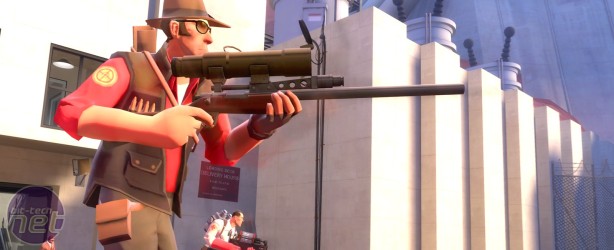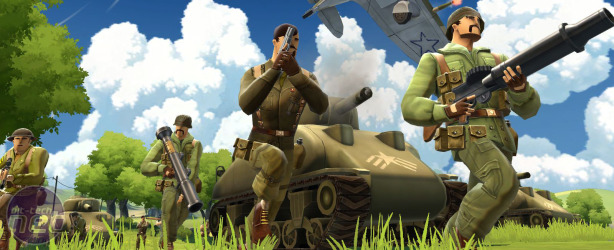
Critical Hit: Everything is Free
Free-to-play and microtransaction based games always make me feel oddly guilty - like someone just offered me a plate of biscuits only for me to scowl back and reply: ‘No. No, thank you.’True, it's not a charitable act on the publishers' part. Zynga isn't worth billions due to being philanthropic, nor are games such as Age of Empires Online or even Team Fortress 2 charitable endeavours. Still, on paper, free-to-play games are still a better deal than either boxed products or subscriptions, right? Why does the idea leave me so cold?
Partly of course, it's because we've seen too many games take the piss with a rusty catheter. Mostly, though, it's uncertainty; especially with genres such as MMORPGs, which are already masters of Skinner Box psychology. I might not object to paying £5 for something such as an adventure pack in a few months; I just don't want to be surprised when that moment comes. Similarly, my time has value. I want to know up front if the game I'm about to download is free-to-play or pay-to-win and how much it'll cost either way - not how skimpy its bikinis are, which is all most F2P adverts seem interested in flaunting.
Some companies do this well. Poking through Steam's new Free to Play section, for instance, I was very impressed by Champions Online's website (if not so much its game) with its full feature-matrix and ability to browse the in-game shop without downloading several gigabytes of game. Pre-release, Age of Empires Online offers very limited information, but at least it makes a point of saying what it plans to sell: game modes, armies and vanity packs, with no microtransactions, no buying your way to the top. The more information I get, the better.
Not everything is about the money, though. Just as important is the impact of designing games around these features. For example, Age of Empires Online has unlockable RPG-style gear as a reward for your grind, which seems madness on toast compared to just having balanced armies and faith in the game itself. Does it make the game better? No, just longer. It's the kind of design element that only gets added in because That's What These Games Do.
On a wider level, online stores and their ilk, regardless of whether they sell gold, buffs or items directly, simply don't fit in most games. They're out-of-context elements, and much like knowing a cheat code or hyper-effective strategy, far too hard to put out of sight or out of mind. It's two worlds colliding. I don't like in-game purchases, because the idea of sorting out problems by effectively nipping into a parallel universe for supplies always breaks the fiction for me.
Similarly, while I don't mind paying £30 for the chance to save the world, or even paying extra for an expansion pack if it's a game I particularly like, actually being asked to do so by the world I'm in the middle of saving just feels... rude. You're not satisfied with merely having the most powerful hero in the world bail you out of trouble? To hell with you then. I hope you burn.
Inconsistent? Sure. I'm aware of that. But context is everything, and while handling sales in-game makes perfect sense from a business perspective, it always rubs me the wrong way.
The idea of Valve properly investing in the genre, both through TF2 and the new Steam F2P area, does interest me though. Yes, Valve has had missteps in the past (Team Fortress 2's magical mystery boxes spring instantly to mind) and the end-goal is unquestionably funding a brand new swimming pool of money for corporate skinny-dipping purposes... but there aren't many developers whose decisions typically feel so well balanced between good business and great design.
Free-to-play games have already been shown to work on the money side. Now they need a champion to really hammer home how they should work as actual games. Who better than the guys who made the world love digital distribution? If they can do it, hats off to them. And somehow, I suspect those hats will be provided...
Critical Hit is a twice-monthly column which explores recent trends and news in the games industry.

MSI MPG Velox 100R Chassis Review
October 14 2021 | 15:04











Want to comment? Please log in.